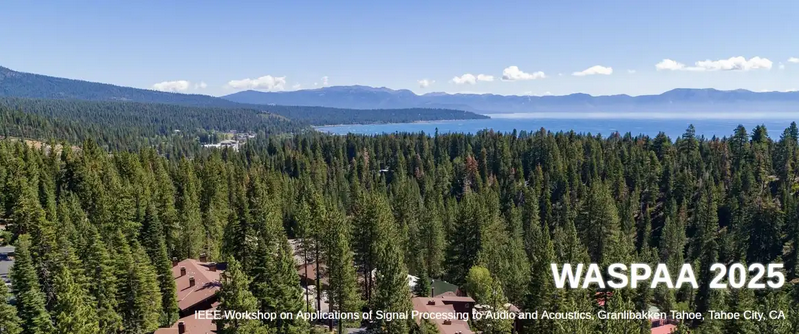AIM at NeurIPS 2025
 On 2-7 December, AIM researchers will participate at the 39th Annual Conference on Neural Information Processing Systems (NeurIPS 2025), taking place in San Diego, USA. NeurIPS is a prestigious annual academic conference and non-profit foundation that fosters the exchange of research in artificial intelligence (AI), machine learning (ML), and computational neuroscience.
On 2-7 December, AIM researchers will participate at the 39th Annual Conference on Neural Information Processing Systems (NeurIPS 2025), taking place in San Diego, USA. NeurIPS is a prestigious annual academic conference and non-profit foundation that fosters the exchange of research in artificial intelligence (AI), machine learning (ML), and computational neuroscience.
The following papers from AIM members will be presented at the Datasets and Benchmarks track of NeurIPS 2025:
- OmniBench: Towards The Future of Universal Omni-Language Models by Yizhi Li, Ge Zhang, Yinghao Ma, Ruibin Yuan, King Zhu, Hangyu Guo, Yiming Liang, Jiaheng Liu, Zekun Moore Wang, Jian Yang, Siwei Wu, Xingwei Qu, Jinjie Shi, Xinyue Zhang, Zhenzhu Yang, Yidan WEN, Yanghai Wang, Shihao Li, Zhaoxiang Zhang, Ruibo Liu, Emmanouil Benetos, Wenhao Huang, Chenghua Lin
- MMAR: A Challenging Benchmark for Deep Reasoning in Speech, Audio, Music, and Their Mix by Ziyang Ma, Yinghao Ma, Yanqiao Zhu, Chen Yang, Yi-Wen Chao, Ruiyang Xu, Wenxi Chen, Yuanzhe Chen, Zhuo Chen, Jian Cong, Kai Li, Keliang Li, Siyou Li, Xinfeng Li, Xiquan Li, Zheng Lian, Yuzhe Liang, Minghao Liu, Zhikang Niu, tianrui wang, Yuping Wang, Yuxuan Wang, Yihao Wu, Guanrou Yang, Jianwei Yu, Ruibin Yuan, Zhisheng Zheng, Ziya Zhou, Haina Zhu, Wei Xue, Emmanouil Benetos, Kai Yu, EngSiong Chng, Xie Chen
The following paper will be presented at the Creative AI track of NeurIPS 2025:
- The Ghost in the Keys: A Disklavier Demo for Human-AI Musical Co-Creativity by Louis Bradshaw, Alexander Spangher, Stella Biderman, Simon Colton
The following papers will be presented at the NeurIPS 2025 Workshop on AI for Music:
- The Ghost in the Keys: A Disklavier Demo for Human-AI Musical Co-Creativity by Louis Bradshaw, Alexander Spangher, Stella Biderman, Simon Colton
- Perceptually Aligning Representations of Music via Noise-Augmented Autoencoders by Mathias Rose Bjare, Giorgia Cantisani, Marco Pasini, Stefan Lattner, Gerhard Widmer
Finally, the following paper will be presented at the Differentiable Systems and Scientific Machine Learning workshop of EurIPS:
- Accelerating Automatic Differentiation of Direct Form Digital Filters by Chin-Yun Yu, George Fazekas
See you all at NeurIPS!
 On 12-15 October, several AIM researchers will participate in the
On 12-15 October, several AIM researchers will participate in the